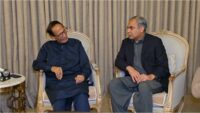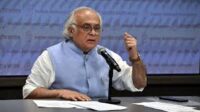The COVID-19 pandemic is the greatest global crisis of this century. Its depth and scale are enormous. The public health crisis threatens each of the 7.8 billion people on Earth. The financial and economic crisis could exceed its impact on the Great Recession of 2008-2009.
Each crisis alone could provide a seismic shock that permanently changes the international system and balance of power as we know it.
To date, international collaboration has been woefully insufficient. If the European Union cannot provide more targeted assistance to its 500 million citizens, national governments might take back more power from Brussels in the future.
In every country, however, there are many examples of the power of the human spirit—of doctors, nurses, political leaders, and ordinary citizens demonstrating resilience, effectiveness, and leadership. That provides hope that men and women around the world can prevail in response to this extraordinary challenge.
It is early days yet, but three things seem apparent. First, the coronavirus pandemic will change our politics, both within states and between them. It is to the power of government that societies—even libertarians—have turned. The government’s relative success in overcoming the pandemic and its economic effects will exacerbate or diminish security issues and the recent polarization within societies. Either way, the government is back.
Experience so far shows that authoritarians or populists are no better at handling the pandemic. Indeed, the countries that responded early and successfully, such as Korea and Taiwan, New Zealand have been democracies — COVID crisis will reshuffle the international power structure in ways we can only begin to imagine.
COVID-19 will continue to depress economic activity and increase tension between countries. The international system will, in turn, come under great pressure, resulting in instability and widespread conflict within and across countries.
I would expect many countries will have difficulty recovering from the crisis, with state weakness and failed states becoming an even more prevalent feature of the world.
The international collaboration between US & China has a direct impact on Britain and European countries.
Where do we stand in all this? I believe in an inward approach when it comes to defense. A strong Nato and a defense budget to ensure Britain, European Nations, and the West are protected.
However, when it comes to economy and politics … we must bear in mind, Chinese leaders now know well that China’s century of humiliation from 1842 to 1949 as a result of its own complacency and a futile effort by its leaders to cut it off from the world. By contrast, the past few decades of economic resurgence were a result of global engagement. The Chinese people have also experienced an explosion of cultural confidence the United States has two choices. If its primary goal is to maintain global primacy, it will have to engage in a geopolitical contest, politically and economically, with China. However, if the goal of the United States is to improve the well-being of the American people—whose social condition has deteriorated—it should cooperate with China.
We need a strong defense to protect us from any possible threat, but as peacemakers, we cannot and should not sign up to a clash of civilization from a political and economic perspective.
The American population needs to regain faith in globalization and international trade. We need strong corporate links between countries to prevent any possible conflict by ensuring a mutual stake in each other’s progress and prosperity.
In words of Former Us President Franklin Roosevelt: If civilization is to survive, we must cultivate the science of human relationships – the ability of all peoples, of all kinds, to live together, in the same world at peace.
Stay tuned to Baaghi TV for the latest news and updates!






